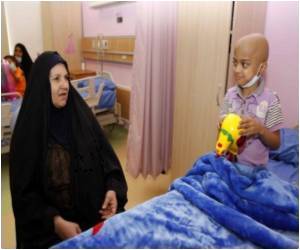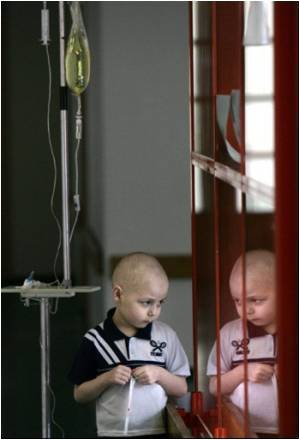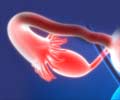
“There is a great need for new agents to treat sarcomas and improve patient outcomes,” said Altiok. “Toxicity from radiation and chemotherapy is high and response rates for patients with sarcomas are modest, with improvement and survival negligible.”
Sarcomas are cancers that result from transformed cells in one of a number of tissues that develop from embryonic mesoderm. Sarcomas include tumors of bone, cartilage, fat, muscle, vascular and hematopoetic tissues. Sarcomas are different from carcinomas that originate in epithelial cells and result in more common cancers, such as breast, colon and lung cancers.
Researchers from Moffitt’s Experimental Therapeutics Program and the Sarcoma Program collaborated in testing MK1775′s ability to inhibit Wee1. It is known to play a role in determining the time-point at which mitosis (cell division) begins. Loss of Wee1 can produce smaller than normal daughter cells. The researchers hypothesized that inhibition of Wee1 could also induce apoptosis, or programmed cell death in sarcoma tumors.
“Inhibition of the pathways critical to tumor cell survival by molecularly targeted therapy represents an opportunity to reverse the biological basis of tumor formation,” explained Altiok. “We found that MK1775 treatment induces apoptopic cell death in four sarcoma cell lines at clinically relevant doses.”
To further prove that inhibition of Wee1 by MK1775 leads to mitotic cell death in sarcomas cells, the researchers performed additional studies, including studies on sarcomas related to mutations, such as with the p53 gene. They also showed that MK1775 was an active inhibitor of Wee1 regardless of the p53 mutation status of the tumors in the cell lines tested.
Advertisement
The researchers concluded that their laboratory tests on sarcoma cell lines suggest that MK1775 is effective as a monotherapy even in the cell lines that include p53 wild, p53 null and p53 mutant statuses.
Advertisement
“Our data has shown that MK1775 treatment causes cell death suggesting ‘mitotic catastrophe,’ a type of cell death that occurs during cell mitosis,” concluded Altiok.
The findings are published in Molecular Cancer Therapeutics.
Source-Medindia









